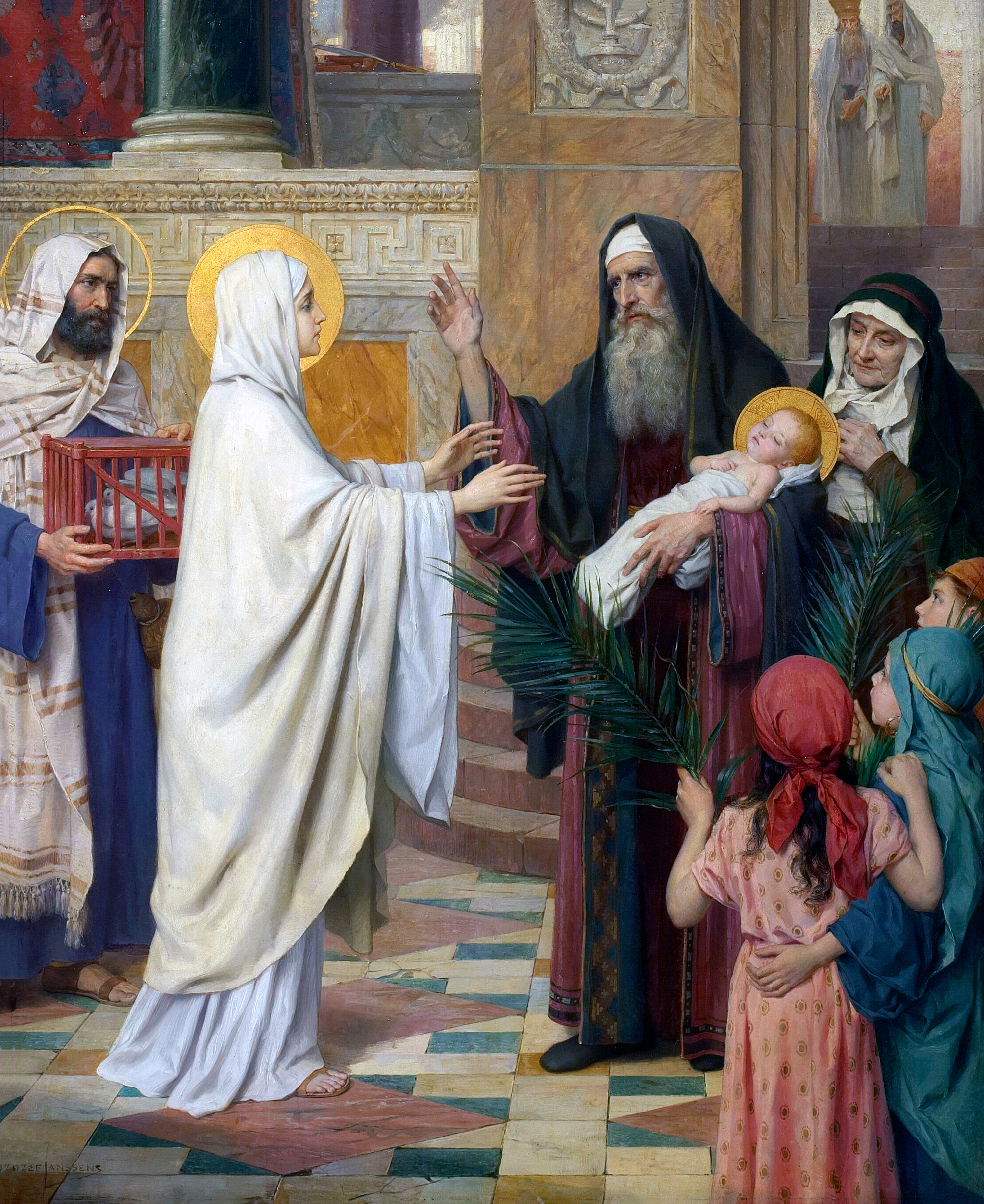The demoniac’s condition is pitiful. He walks alone among the dead scourging himself. He had been bound with many chains, yet not one could restrain him.
What caused him to run to Jesus “at once?” Did the man rush to Jesus in a desperate attempt for freedom? Or, were the demons who possessed him trying to strike a deal with God and escape further condemnation? The Scriptures aren’t explicit, but the rest of the story leads one to believe that the answer is both.
“What have you to do with me?” the demoniac asks. This strikes us as the plea of a desperate man. But don’t we similarly question God? “Jesus, please explain why you’re letting my life fall apart? God, are you going to do something, or let me suffer forever? Don’t you see me?”
Yet, the demoniac has an unrevealed insight about who Jesus is calling Him, “Son of the Most High God,” which confirms that the demons are also engaged in the conversation. They know that a reckoning is upon them and ask to not be tormented, “I adjure you by God, do not torture me!” It is very possible, however, that the man is begging for mercy for his cooperation with evil as well. We can relate as this is primarily why we go to confession.
Jesus sends both judgment and mercy. In His judgment, Jesus gives way to Legion’s request and allows the demons to drown in the unclean temple swine as a consequence of their disobedience. Why? They don’t want to leave the territory of the souls they led astray. Being in Greek territory, pagan idolatry was rampant and temples to demons parading as gods were plenty. This hideous scene is a demonstration of God, in His justice, leaving us to our sin if we so choose.
That is utterly terrifying. Do we really want to drown as a consequence of our sin? After reading this grotesque story, I certainly do not.
Yet, God’s mercy shines. Just as Legion didn’t want to leave the man (in verse eight Jesus repeatedly rebukes the demons who refuse to leave) Jesus wouldn’t give up the fight to free him. Jesus asks and calls the demon by name, not because He didn’t know it, but to take command and root it out. When Jesus offers us mercy, He goes to the root of our sin. He calls it out by name.
We don’t know what the man did to invite the demons into his life, but his anguish before our Lord displays his hunger for peace once again. To unhook the demons’ talons that had latched onto his soul he had to let Jesus wrestle on His behalf. Doesn’t overcoming sin, vice, or addiction sometimes feel like an endingless wrestling match? It can be. Today’s lesson from a madman is to be an absolute beggar before the Lord. Let Him go into the deep and fight for you.
La condición del endemoniado es lamentable. Camina solo entre los muertos, azotándose. Había estado atado con muchas cadenas, pero ninguna podía contenerlo.
¿Qué lo hizo echarse a correr hacia Jesús? ¿Se apresuró el hombre hacia Jesús en un intento desesperado por liberarse? ¿O los demonios que lo poseían estaban tratando de llegar a un acuerdo con Dios para escaparse de una condena peor? Las Escrituras no lo especifican pero creo que son ambas cosas.
“¿Qué quieres tú conmigo?”, pregunta el endemoniado. Esto nos parece la súplica de un hombre desesperado. Pero ¿no le preguntamos a Dios de manera semejante? “Jesús, por favor, explícame por qué estás permitiendo que mi vida se desmorone. Dios, ¿vas a hacer algo o vas a dejarme sufrir para siempre? ¿No me ves?”
Sin embargo, el endemoniado tiene una idea no revelada sobre quién es Jesús llamándolo, “Hijo de Dios Altísimo”, lo cual confirma que los demonios también están involucrados en la conversación. Ellos saben que se acerca un ajuste de cuentas y piden no ser atormentados: “Te ruego por Dios que no me atormentes!” Sin embargo, es muy posible que el hombre también esté pidiendo misericordia por su cooperación con el mal. Podemos identificarnos con él, ya que esta es la razón principal por la que vamos a confesarnos.
Jesús envía tanto juicio como misericordia. En su juicio, Jesús cede a la petición de Legión y permite que los demonios se ahoguen en los cerdos inmundos del templo como consecuencia de su desobediencia. ¿Por qué? No quieren abandonar el territorio de las almas que extraviaron. Al estar en territorio griego, la idolatría pagana estaba desenfrenada y los templos para demonios que se hacían pasar por dioses abundaban. Esta horrible escena es una demostración de que Dios, en su justicia, nos deja con nuestro pecado si así lo elegimos.
Eso es absolutamente aterrador. ¿Realmente queremos ahogarnos como consecuencia de nuestro pecado? Después de leer esta historia grotesca, ciertamente no quiero yo.
Sin embargo, la misericordia de Dios brilla. Así como Legión no quería dejar al hombre (en el versículo ocho Jesús reprende repetidamente a los demonios que se niegan a irse), Jesús no se daría por vencido en la lucha por liberarlo. Jesús pregunta y llama al demonio por su nombre, no porque no lo supiera, sino para tomar el mando y erradicarlo. Cuando Jesús nos ofrece misericordia, va a la raíz de nuestro pecado. Lo llama por su nombre.
No sabemos qué hizo el hombre para invitar a los demonios a su vida, pero su angustia ante nuestro Señor muestra una vez más su hambre de paz. Para desenganchar las garras de los demonios que se habían aferrado a su alma, tuvo que dejar que Jesús luchará en su nombre. ¿Acaso vencer el pecado, el vicio o la adicción no se siente a veces como una lucha interminable? Puede ser. Hoy la lección de un loco es ser un mendigo absoluto ante el Señor. Déjalo ir a lo más profundo y pelear por ti.
 Former NPS Park Ranger, Catholic educator, and Youth Minister, Melissa Lucca now spends her days evangelizing family and neighbors as a stay-at-home mom. She holds an MA in Theology from the Augustine Institute and pursues personal study in her spare time. Melissa loves Ignatian Spirituality, Mother Mary, and rock climbing. If you don’t hear her and her kiddo laughing at home, then they are probably out on an adventure!
Former NPS Park Ranger, Catholic educator, and Youth Minister, Melissa Lucca now spends her days evangelizing family and neighbors as a stay-at-home mom. She holds an MA in Theology from the Augustine Institute and pursues personal study in her spare time. Melissa loves Ignatian Spirituality, Mother Mary, and rock climbing. If you don’t hear her and her kiddo laughing at home, then they are probably out on an adventure!
Feature Image Credit: bible.art/p/jj7zyGRqU9fRiU7Kpx93/mark-5:13-and-forthwith-jesus-gave
The views and opinions expressed in the Inspiration Daily blog are solely those of the original authors and contributors. These views and opinions do not necessarily represent those of Diocesan, the Diocesan staff, or other contributors to this blog.


 Nicole Berlucchi is a faith and family blogger (
Nicole Berlucchi is a faith and family blogger (
 David Dashiell is a freelance author and editor in the Nashville, Tennessee area. He has three children, a degree in theology, and enjoys writing about philosophy, theology, culture, music, and comedy. You can find his personal blog, Serious Daydreams, on
David Dashiell is a freelance author and editor in the Nashville, Tennessee area. He has three children, a degree in theology, and enjoys writing about philosophy, theology, culture, music, and comedy. You can find his personal blog, Serious Daydreams, on 
 Pamela Kavanaugh is a grateful wife, mother, and grandmother who has dedicated her professional life to Catholic education. Though she has done her very best to teach her students well in the subjects of language and religion, she knows that she has learned more than she has taught. She lives, teaches, and writes in southwest suburban Chicago.
Pamela Kavanaugh is a grateful wife, mother, and grandmother who has dedicated her professional life to Catholic education. Though she has done her very best to teach her students well in the subjects of language and religion, she knows that she has learned more than she has taught. She lives, teaches, and writes in southwest suburban Chicago.




 Tami Urcia is a midwestern gal from a large Catholic family. As a young adulthood she was a missionary in Mexico, where she studied theology and philosophy. After returning stateside bilingual, she gained a variety of work experience, traveled extensively and finished her Bachelor’s Degree at Brescia University. She loves organizing and simplifying things, watching her children play sports, deep conversations with close family and friends and finding unique ways to brighten others’ day with Christ’s love. She works full time at Diocesan in the Software Department and manages the Inspiration Daily reflections. She is also a guest blogger on
Tami Urcia is a midwestern gal from a large Catholic family. As a young adulthood she was a missionary in Mexico, where she studied theology and philosophy. After returning stateside bilingual, she gained a variety of work experience, traveled extensively and finished her Bachelor’s Degree at Brescia University. She loves organizing and simplifying things, watching her children play sports, deep conversations with close family and friends and finding unique ways to brighten others’ day with Christ’s love. She works full time at Diocesan in the Software Department and manages the Inspiration Daily reflections. She is also a guest blogger on 
 Deacon Dan Schneider is a retired general manager of industrial distributors. He and his wife Vicki have been married for over 55 years. They are the parents of eight children and thirty-one grandchildren. He has a degree in Family Life Education from Spring Arbor University. He was ordained a Permanent Deacon in 2002. He has a passion for working with engaged and married couples and his main ministry has been preparing couples for marriage.
Deacon Dan Schneider is a retired general manager of industrial distributors. He and his wife Vicki have been married for over 55 years. They are the parents of eight children and thirty-one grandchildren. He has a degree in Family Life Education from Spring Arbor University. He was ordained a Permanent Deacon in 2002. He has a passion for working with engaged and married couples and his main ministry has been preparing couples for marriage.

 Ben Hooper is originally from Maryland, having been adopted from Korea and growing up in the Catholic faith. He went to Franciscan University to dive deeper into his faith and eventually graduated with a degree in Business Management. He loves musical theater, sports, spending time with his fiancé Lily and their dog Kolbe.
Ben Hooper is originally from Maryland, having been adopted from Korea and growing up in the Catholic faith. He went to Franciscan University to dive deeper into his faith and eventually graduated with a degree in Business Management. He loves musical theater, sports, spending time with his fiancé Lily and their dog Kolbe.
 Allison Gingras (
Allison Gingras (
 Hailing from Nashville, Catherine is a graduate of Christendom College with a lifelong passion for words. Her love of writing and her Catholic Faith continue to shape her as a freelance editor, copywriter, and (aspiring) novelist, where she pursues her passions for the love and greater glory of God.
Hailing from Nashville, Catherine is a graduate of Christendom College with a lifelong passion for words. Her love of writing and her Catholic Faith continue to shape her as a freelance editor, copywriter, and (aspiring) novelist, where she pursues her passions for the love and greater glory of God.